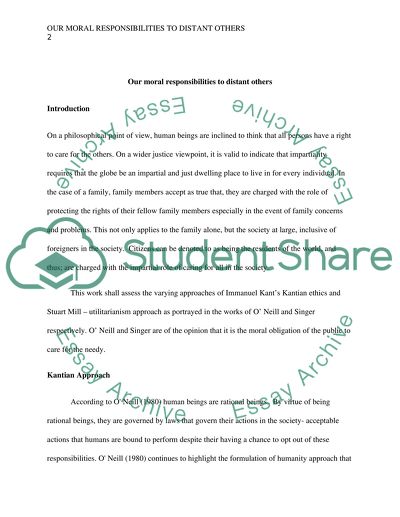Cite this document
(“Peter Singer and Onora O'Neill offer different accounts of our moral Essay”, n.d.)
Retrieved de https://studentshare.org/philosophy/1605337-peter-singer-and-onora-oneill-offer-different-accounts-of-our-moral-responsibilities-to-distant-others-during-famines-after-outlining-each-account-explain-difficulties-the-problem-of-distant-others-may-pose-for-either-theory-and-defend-one-of-the
Retrieved de https://studentshare.org/philosophy/1605337-peter-singer-and-onora-oneill-offer-different-accounts-of-our-moral-responsibilities-to-distant-others-during-famines-after-outlining-each-account-explain-difficulties-the-problem-of-distant-others-may-pose-for-either-theory-and-defend-one-of-the
(Peter Singer and Onora O'Neill Offer Different Accounts of Our Moral Essay)
https://studentshare.org/philosophy/1605337-peter-singer-and-onora-oneill-offer-different-accounts-of-our-moral-responsibilities-to-distant-others-during-famines-after-outlining-each-account-explain-difficulties-the-problem-of-distant-others-may-pose-for-either-theory-and-defend-one-of-the.
https://studentshare.org/philosophy/1605337-peter-singer-and-onora-oneill-offer-different-accounts-of-our-moral-responsibilities-to-distant-others-during-famines-after-outlining-each-account-explain-difficulties-the-problem-of-distant-others-may-pose-for-either-theory-and-defend-one-of-the.
“Peter Singer and Onora O'Neill Offer Different Accounts of Our Moral Essay”, n.d. https://studentshare.org/philosophy/1605337-peter-singer-and-onora-oneill-offer-different-accounts-of-our-moral-responsibilities-to-distant-others-during-famines-after-outlining-each-account-explain-difficulties-the-problem-of-distant-others-may-pose-for-either-theory-and-defend-one-of-the.


